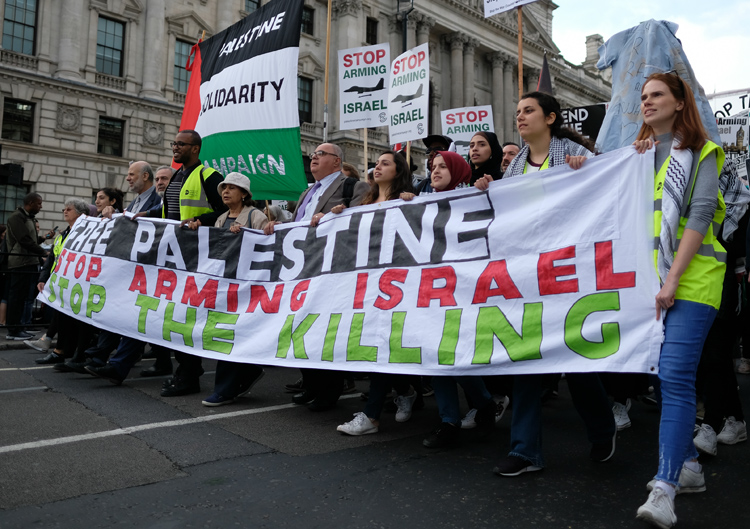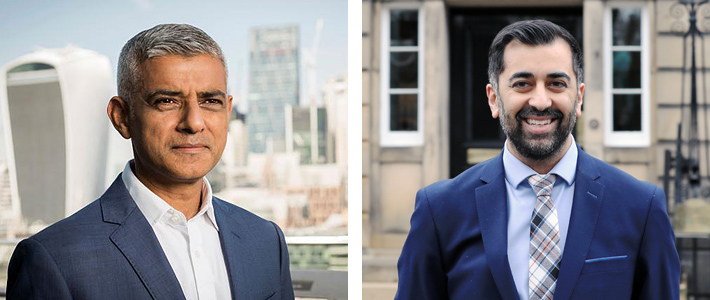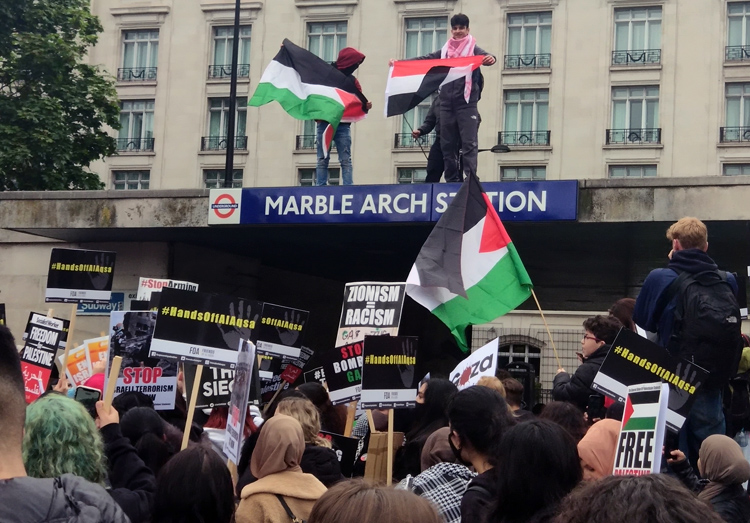INDIAN ARMED FORCES CHIEFS ON OUR RELENTLESS AND FOCUSED PUBLISHING EFFORTS

The insightful articles, inspiring narrations and analytical perspectives presented by the Editorial Team, establish an alluring connect with the reader. My compliments and best wishes to SP Guide Publications.

"Over the past 60 years, the growth of SP Guide Publications has mirrored the rising stature of Indian Navy. Its well-researched and informative magazines on Defence and Aerospace sector have served to shape an educated opinion of our military personnel, policy makers and the public alike. I wish SP's Publication team continued success, fair winds and following seas in all future endeavour!"

Since, its inception in 1964, SP Guide Publications has consistently demonstrated commitment to high-quality journalism in the aerospace and defence sectors, earning a well-deserved reputation as Asia's largest media house in this domain. I wish SP Guide Publications continued success in its pursuit of excellence.
- MoD initiates comprehensive review of Defence Acquisition Procedure 2020, pushes for defence reforms
- G7: The Swansong
- Kalinga Connect: South Asia to Polynesia
- Must Credit DRDO for Operation Sindoor, now what is next for defence R&D?
- The layered Air Defence systems that worked superbly, the key element of Operation Sindoor
- Operation Sindoor | Day 2 DGMOs Briefing
- Operation Sindoor: Resolute yet Restrained
Is London Going the Lebanon Way?
London's current struggles with identity and internal strife draws parallels with the turbulent history of Lebanon, tracing its path from prosperity to peril
 |
The Author is former Chief of Staff of a frontline Corps in the North East and a former helicopter pilot. He earlier headed the China & neighbourhood desk at the Defence Intelligence Agency. He retired in July 2020 and held the appointment of Addl DG Information Systems at Army HQ. |

On the surface, there is little basis to compare the world's 6th largest economy to the 112th. One is a former great colonial power with a permanent seat in the UN Security Council while the other was a French Mandate and now has tenuous hold even over its own territory. But if we understand Lebanisation as a process rather than a product, view it as a path, a direction rather than a destination, then some arguments fall in place.
Lebanon's tale of Prosperity and Plunge
Lebanon saw its heyday in the 1960s and early 1970s. The country became a regional centre for the rich and famous who flew from around the world to gamble at the Casino Du Liban, or to attend concerts in the ancient northeastern city of Baalbek.
Then the Palestinians arrived, evicted from Jordan following their attempts to assassinate the very sovereign hosting them, King Hussein, during the Black September events of 1970. By then, the PLO had already acquired a sinister reputation having staged a series of terrorist attacks, including airplane hijackings and the murder of Israeli athletes at the 1972 Munich Olympics.
The tragic slide of Lebanon from the heights of prosperity in the sixties when Beirut was being referred to as the 'Paris of the East' to the shocking chaos that prevails today must be viewed with gravity
Palestinian fighters then began launching attacks against Israel from Lebanese territory, splitting the Lebanese. Disaster struck in 1975, with the start of the 15-year civil war, eventually pitting Lebanon's sects against each other. The prosperous Maronite Christians who held the Presidency and dominated the Army were attacked by heavily armed guerrilla bands of Muslims; Palestinian fighters leading. Syrian troops moved in, and Israel invaded twice – once in 1978, then again in 1982 which marked the rise of Hezbollah.

The delicately balanced confessional system of power sharing arrangement which had been adopted in 1943 was based on the 1932 census in which Maronites made up 33.57 per cent, Sunnis made up 18.57 per cent and Shiites made up 15.92 per cent (with several other denominations making up the remainder). Since the seventies, Lebanon has seen a heavy influx of refugees including 1.5 million Syrians, 4,80,000 Palestinians, and about 10,000 Iraqis. Combined with fact that hordes of distrust Christians have fled the country since the civil war of 1975, the sectarian composition is now hugely altered.
Since the seventies, Lebanon has seen a heavy influx of refugees including 1.5 million Syrians, 4,80,000 Palestinians, and about 10,000 Iraqis hugely altering the sectarian composition
While there is virtual collapse of the confessional system, heavily militarised religious fronts are running riot. Corruption has soared, and the sectarian-based patronage system has left Lebanon with crumbling infrastructure, a bloated public sector and one of the world's highest debt ratios, at 170 per cent of GDP.
The tragic slide of Lebanon from the heights of prosperity in the sixties when Beirut was being referred to as the 'Paris of the East' to the shocking chaos that prevails today must be viewed with gravity. Two inter-related features stand out. One is the changing demography with influx of refugees and exodus of Christians after the civil war erupted in 1975. A second factor is the issue of Palestine which pushed Lebanon into civil wars, multiple invasions by Israel, and most painfully, fractured its otherwise rich blend of religions and cultures.
London's Crossroads – Echoes from Lebanon's past
London is exhibiting signs of these very distinctive and innate features. Since the outbreak of war in Gaza on October 7, hundreds of thousands of pro-Palestinian demonstrators have marched through central London regularly and clogged its streets, sometimes violently clashing with the police as well as far-right counter-protesters. Earlier, Hindus and Muslims have fought pitched battles on the streets of Leicester.

Muslims now constitute roughly 15 per cent of the population of London. Mayor Sadiq Khan and Scotland's first minister, Humza Yousaf, have accused government of inflaming tensions even as the London Metropolitan Police is seen to be favouring "pro-Palestinian mobs". Extreme anti-blasphemy action in the name of 'defending Islam' are frequently seen on the streets of London and across Britain, posing a serious threat to social cohesion. ISIS has made inroads, recruiting many and drawing blood.
London is among the most preferred places to visit, do business, is a well-known centre for foreign exchange, banking and insurance, and bond trading. However, there are worrying and familiar signs of how much Palestine has come to occupy centre stage in the conversations, culture and polity of Britain.
This comes even as the grooming gangs' scandal explodes. A 2014 report commissioned by Rotherham Council said that at least 1,400 children were subjected to sexual exploitation in Rotherham between 1997 and 2013. Children as young as 11 were raped, trafficked, abducted, beaten, and intimidated, predominantly by men of Pakistani heritage, it said. Armed gangs of shoplifters are running riot in supermarkets across the country - but retail chiefs have accused police of ignoring them. Some localities have become no-go areas; one store in London was looted three times in one day.

Nations do have their fair share of ups and downs; some see meteoritic rise and precipitous fall, like that of Argentina. Before the Great Depression in 1930, Argentina stood among the world's 10 richest nations per capita. In 1913, its income per capita exceeded that of Italy, Spain, and Portugal by a wide margin. To have speculated then that Argentina was set to become an underdeveloped country would have been considered laughable. But since the 1950s, few countries have spent more years in recession and runaway inflation hitting 100 per cent. Today, more than four in 10 Argentines live in poverty.
Warning Signs and Wake-up Calls
This is not to suggest that Britain is barrelling down that path, but simply to posit that such possibilities are not unknown or unprecedented. London still remains the financial capital of the world, ahead of New York despite many setbacks including decoupling from Europe after Brexit. The country has world-class universities, significant military capabilities, a vibrant, open multiracial society and notable cultural and sporting soft power. London is among the most preferred places to visit, do business, is a well-known centre for foreign exchange, banking and insurance, and bond trading. Any obituaries are premature and presumptuous.
However, there are worrying and familiar signs of how much Palestine has come to occupy centre stage in the conversations, culture and polity of Britain. Last week, the UK Parliament Speaker Lindsay Hoyle broke with longstanding parliamentary procedure in a motion calling for ceasefire in Gaza because of what he described as "absolutely frightening" threat against lawmakers. The Conservative Party suspended their MP Lee Anderson for saying the London Mayor was under control of Islamists. Pro-Palestinian protesters beamed "From the river to the sea, Palestine will be free", a call for elimination of Israel, onto the Elizabeth Tower (Big Ben) of the Parliament. These developments are ominous. They happened in Lebanon over 50 years back dragging down that beautiful country into abyss. Keep a lookout!





